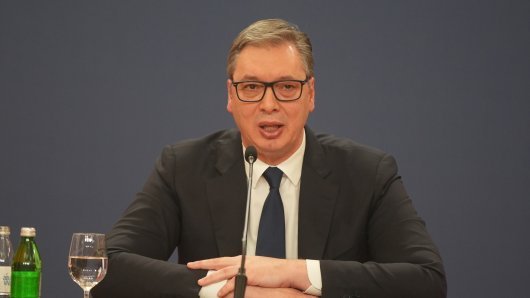EU support in Croatia has reached an absolute low, even lower than that seen in pre-accession, according to findings of a Gallup Balkan Monitor opinion poll.
While the share of those feeling that EU accession would be "neither good nor bad" for the country has remained unchanged at 38% since 2009, more people now thought that it would be a "bad thing" (up 4 percentage points to 32% in 2010). Only 25% or respondents in Croatia thought of EU accession as a "good thing" and only 38% would currently vote "Yes" in an EU referendum – as opposed to 43% that would vote "No", according to the Gallup Balkan Monitor for 2010, released in Brussels on Wednesday.
The latest, fourth in a row opinion poll was carried out in July 2010 in Croatia, Serbia, Macedonia, Albania, Kosovo, Montenegro, and Bosnia and Herzegovina. In each country, the survey was carried out among 1,000 respondents.
The report "Insights and perceptions - Voices of the Balkans" includes findings on the perception of those living in the region on a range of issues such as life satisfaction and attitudes towards the EU, as well as attitudes to corruption, governance and religion.
One positive development regarding Croats' views on the EU was that they were now much more confident that they would be welcomed in the EU: an increase from 42% to 55% of respondents who felt that people wanted Croatia in the Union.
Croats believe they will enter the bloc in 2014, while in previous polls they thought the country would join the European Union in 2013. They believe the biggest advocate of Croatia's EU membership is Germany and the country that opposes Zagreb's EU admission the most is Slovenia.
The survey showed that in all Balkan countries, except Croatia, majorities of respondents would vote in favour of their country joining the EU; proportions ranged from 63% in Serbia to 93% in Albania. In Croatia, those who would vote against their country's accession outnumbered those who would vote "Yes".
Respondents in Bosnia and Herzegovina have become much more optimistic regarding their country’s EU accession date. While in 2009, the average date estimated by interviewees in the country was 2022, Bosnian respondents now, on average, believed that their country might join as early as 2018.
Croatia's score is 5.6 (on a scale of 1 to 10) when it comes to the average life satisfaction, which makes Croats the happiest with their life among Balkan nations.
In all countries of the Western Balkans, more than half of the respondents reported difficulties in being able to manage their households’ income; this share ranged from 52% in Croatia to 78% in Serbia.
Compared to 2009, in Serbia, Montenegro, Albania, Kosovo, and Bosnia and Herzegovina, more people now reported difficulties in making ends meet. In Kosovo the proportion of respondents with financial difficulties has risen by 19 percentage points to 54%.
Balkan residents were also rather pessimistic regarding their economies’ future developments. Croatia was the only country where respondents were more optimistic than they were a year ago. However, in Croatia as well as other Balkan countries, respondents feeling that the situation was getting worse clearly outnumbered those feeling the opposite. In Bosnia and Herzegovina, Serbia and Croatia, about two-thirds of respondents expected to see a further economic downturn.
A total of 93 percent of Croats were inclined to believe in widespread corruption in the business world.
Most Balkan citizens did not anticipate another armed conflict in the region.




































